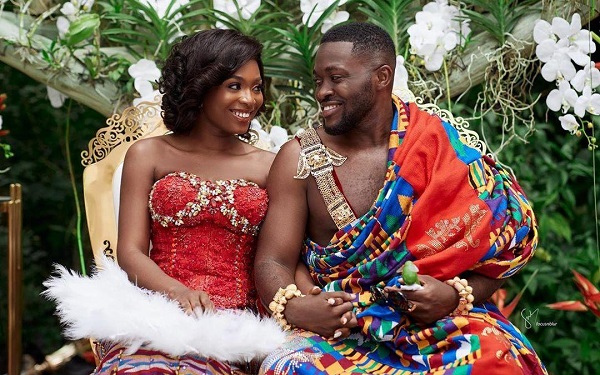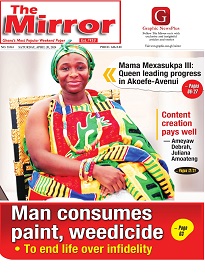The Mirror's Health , Lifestyle and Fashion

Can you ‘sign’ after the traditional marriage?
We originally decided to have both a traditional ceremony and a church wedding. However after preparing our budget, we realised that having two ceremonies will put a strain on our finances.
Advertisement
My fiancé has suggested to me that we have one ceremony where the traditional ceremony is performed and then we sign afterwards. I have heard of people doing that but I am not sure of the effect of signing after the traditional marriage has been performed.
Is it just a mere formality?
Antwiwaa, Dzorwulu
Dear Antwiwaa, There are three types of marriages in Ghana. These are the customary law marriage, the Marriage of the Mohammedans and the Christian and other marriages.

The customary law marriage, commonly referred to as the engagement, and the Marriage of the Mohammedans are both potentially polygamous.
What this means is that the man can enter valid marriages with other women after the first marriage has been contracted.
A man can marry up to four women in a Marriage of the Mohammedans whereas with a customary law marriage, there is no limit to the number of women a man can marry.
However, Christian and other marriages, also referred to as Marriage under the Ordinance, are monogamous. This therefore means that once the parties get married under the Ordinance, neither of them can validly enter into a subsequent marriage unless their marriage is dissolved.
Customary law marriages and Marriages under the Ordinance are mutually exclusive. This means that the two cannot subsist at the same time.
This is because a customary law marriage is potentially polygamous whereas a Marriage under the Ordinance is monogamous. As a result, where a customary law marriage exists and the requirements are met to contract a Marriage under the Ordinance, the customary law marriage ceases to exist.
The marriage between the parties therefore converts into a marriage under the Ordinance, thereby changing the marriage from a polygamous one into a monogamous marriage.
It is important to note that the law which governs conversion of marriages in Ghana is Part Three of
The Marriages Act (1884 – 1985) formerly referred to as CAP 127.
According to Section 41 of The Marriages Act (1884 – 1985), a marriage under the Ordinance must be celebrated under the authority of a Registrar’s Certificate, a Marriage Officer’s Certificate or a Special License from the Principal Registrar of Marriages.
A Registrar’s Certificate is applied for when the parties intend to get married at the office of the Registrar of Marriages.
On the other hand, a Marriage Officer’s Certificate is applied for where the parties intend to get married in a church. In such a case, the pastor of the church is the person authorised to perform the marriage ceremony.
The acquisition of a Special License is provided for under Section 55 of The Marriages Act (1884 – 1985). A Special License gives the parties the authorisation to get married at a place other than a church or a Registrar’s office.
A Special License will only be granted where the Registrar is satisfied by affidavit that there is no lawful impediment to the marriage.
For example, if either party is married to another person at the time of applying for a Special License, there is a lawful impediment to the proposed marriage.
The effect of a Special License is that when granted, the parties can dispense with publication of banns or giving of notice, which is a requirement under the Marriage Officer’s Certificate and the Registrar’s Certificate respectively.

Additionally, a Special License gives parties the flexibility to choose where they want to contract their Ordinance marriage. The Registrar may authorise the celebration of the marriage at a particular location that the parties choose.
In such a case, the marriage must necessarily be celebrated on the date and at the place specified on the Special License. Anything contrary will render the marriage void.
Consequently, when done in accordance with law, signing after the customary law marriage has been performed converts the marriage between the parties from a customary law marriage into a Marriage under the Ordinance.
Given the fact that you want to sign within the same ceremony as your customary law marriage, it is advised that you apply for a Special License from the Principal Registrar of Marriages.




